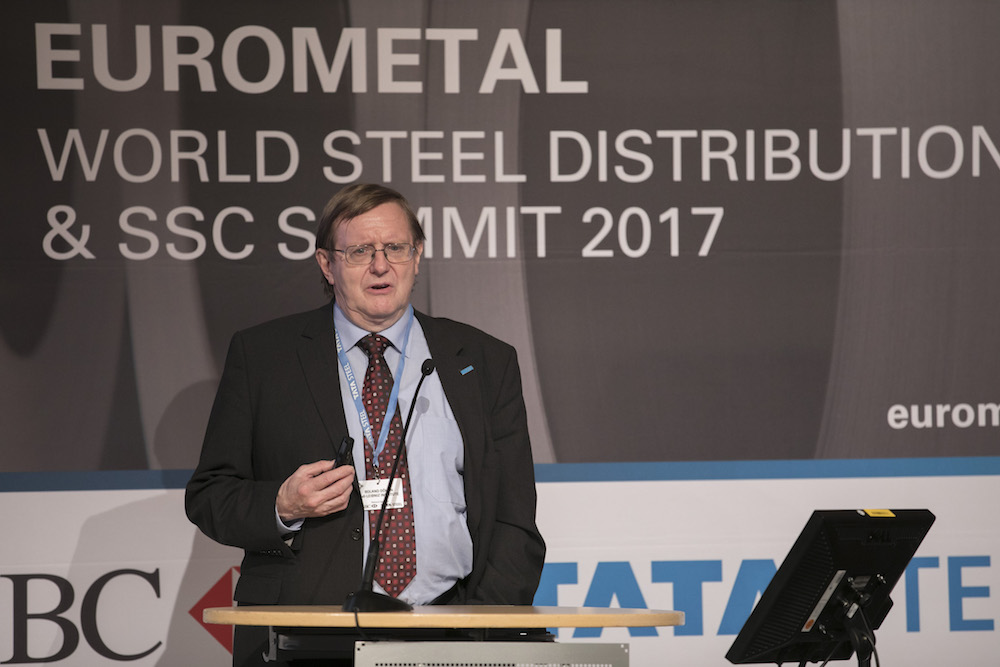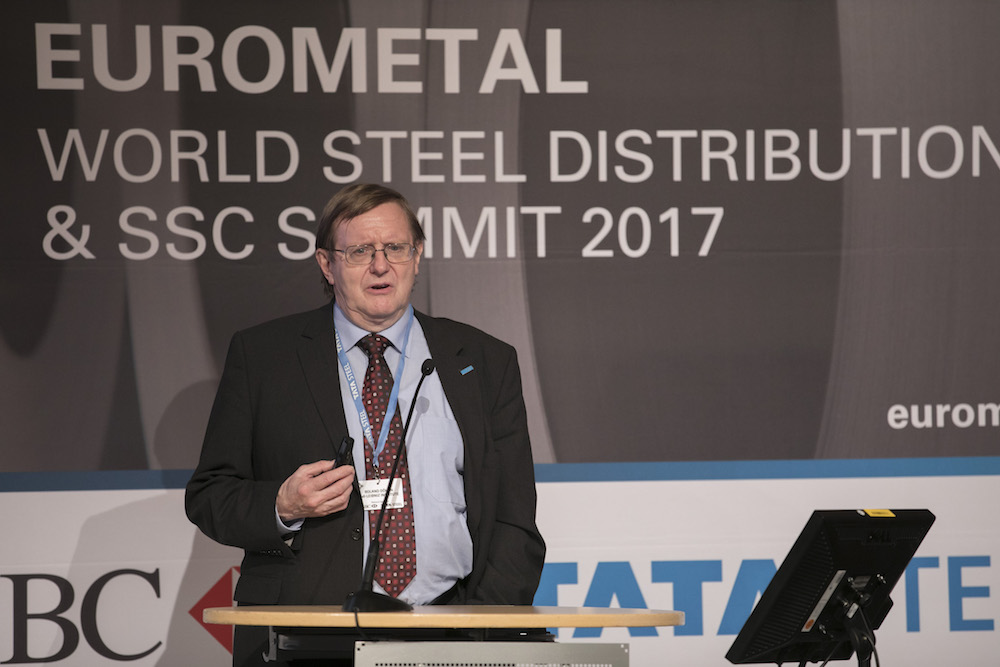
The European construction market has seen a reversal of fortunes lately, but overcapacity among the steel producers that serve the sector and political and economic uncertainty will continue to drag on fundamentals for some time, according to speakers at an industry event in Germany.
In a presentation Thursday at the EUROMETAL World Steel Distribution & SSC Summit in Dusseldorf, Gareth Beese – strategic development director for construction at British Steel – said construction has seen a progressive recovery in Europe and sentiment within the industry is positive.
Germany, in particular, has benefited from the upturn, according to Roland Dohrn, a professor of economic research at the RWI-Leibniz Institute.
“If you drive around in Germany, you will see a lot of cranes there,” Dohrn said, adding that he worries, though, whether data regarding the upturn is perhaps “a bit too good to be true.”
Margins remain thin for the companies that produce construction products like beams and rebar, and it’s a fragmented market with limited collaboration among participants, Beese said.
“There’s significant overcapacity still,” he said. “Producers have had to get used to operating plants at less than 100%.”
Dohrn said Europe’s economy performed well in the first quarter of 2017, which could underpin an upswing going forward. However, GDP growth for the region is predicted to be only around 1.9% in 2017 and 1.7% in 2018. Traditionally, a minimum of 2% growth has been necessary to stimulate significant additional steel demand and production, and Dohrn said the rule of thumb now has probably risen to even 3-3.5% GDP growth.
Beese said Brexit and its impact also continue to cloud the longer-term picture, not only for steel but from an economic standpoint, as well. “I think there’s a prolonged period of uncertainty for all of us,” he said.
One certainty he hopes for, though, is that Europe and the UK will remain post-Brexit trade partners. “We want and expect continued access to European markets and, quid pro quo, the UK market will remain open to European producers,” Beese said.
Christopher Davis, S&P Global Platts





